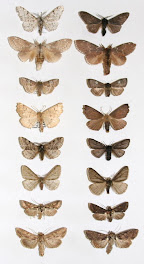This is interesting:
Biologists at Georgia Tech have provided scientific support for a controversial hypothesis that has divided the fields of evolutionary genomics and evolutionary developmental biology, popularly known as evo devo, for two years. Appearing in the December 2005 issue of Trends in Genetics, researchers find that the size and complexity of a species’ genome is not an evolutionary adaptation per se, but can result as simply a consequence of a reduction in a species’ effective population size.
*snip*
Their test consisted of analyzing data from 1,043 species of fresh and saltwater ray-finned fish. Previous data on genetic variability had established that freshwater species have a smaller effective population size than their marine counterparts. If the hypothesis was correct, the genome size of these freshwater fish would be larger than that of the saltwater dwellers. It was.
Then they matched the data with estimates of heterozygosity, a measure of the genetic variation of a population. Again they found that species with a smaller effective population had larger genomes.
“We see a very strong negative linear relationship between genome size and the effective population size,” said Soojin Yi, assistant professor in the School of Biology and lead author of the study. “This observation tells us that the mutations that increase the genome tend to be slightly deleterious, because population genetic theories predict such a relationship.”
“The interesting thing here is that biological complexity may passively evolve,” said Yi. “We show that at the origins, it’s not adaptive mutations, but slightly bad ones that make the genome larger. But if you have a large genome, there is more genetic material to play with to make something useful. At first, maybe these mutations aren’t so good for your genome, but as they accumulate and conditions change through evolution, they could become more complex and more beneficial.”
Interesting, I may do a more detailed post on this in the future, but in the meantime, I just thought I would point this out for (Evolgen seems to be really busy otherwise I wuld pester him about it) others to consider or maybe do a post on...
Incidently, here is a link to the recent paper. I'm still trying to track down the 2003 paper mentioned in the press release.








